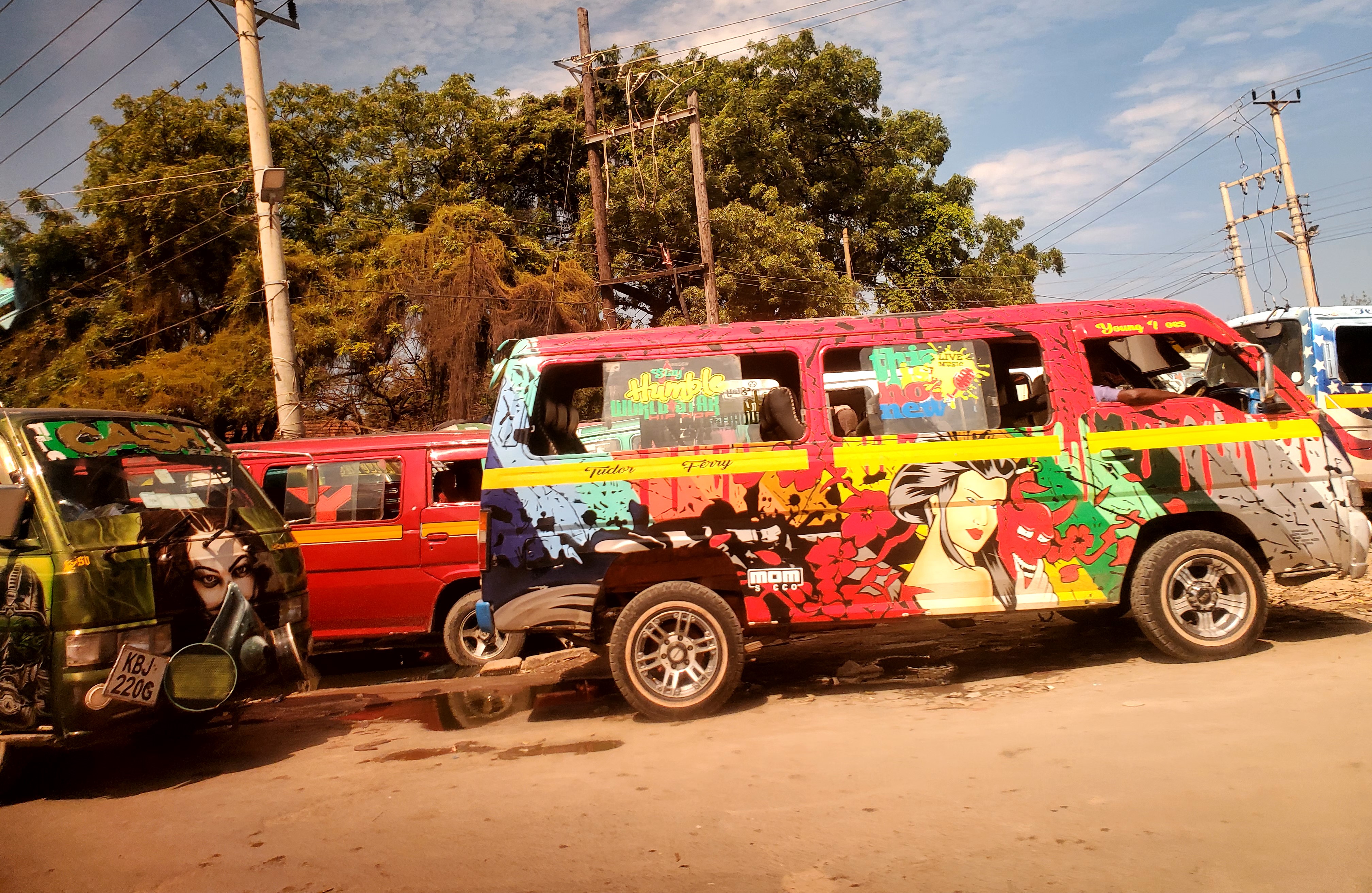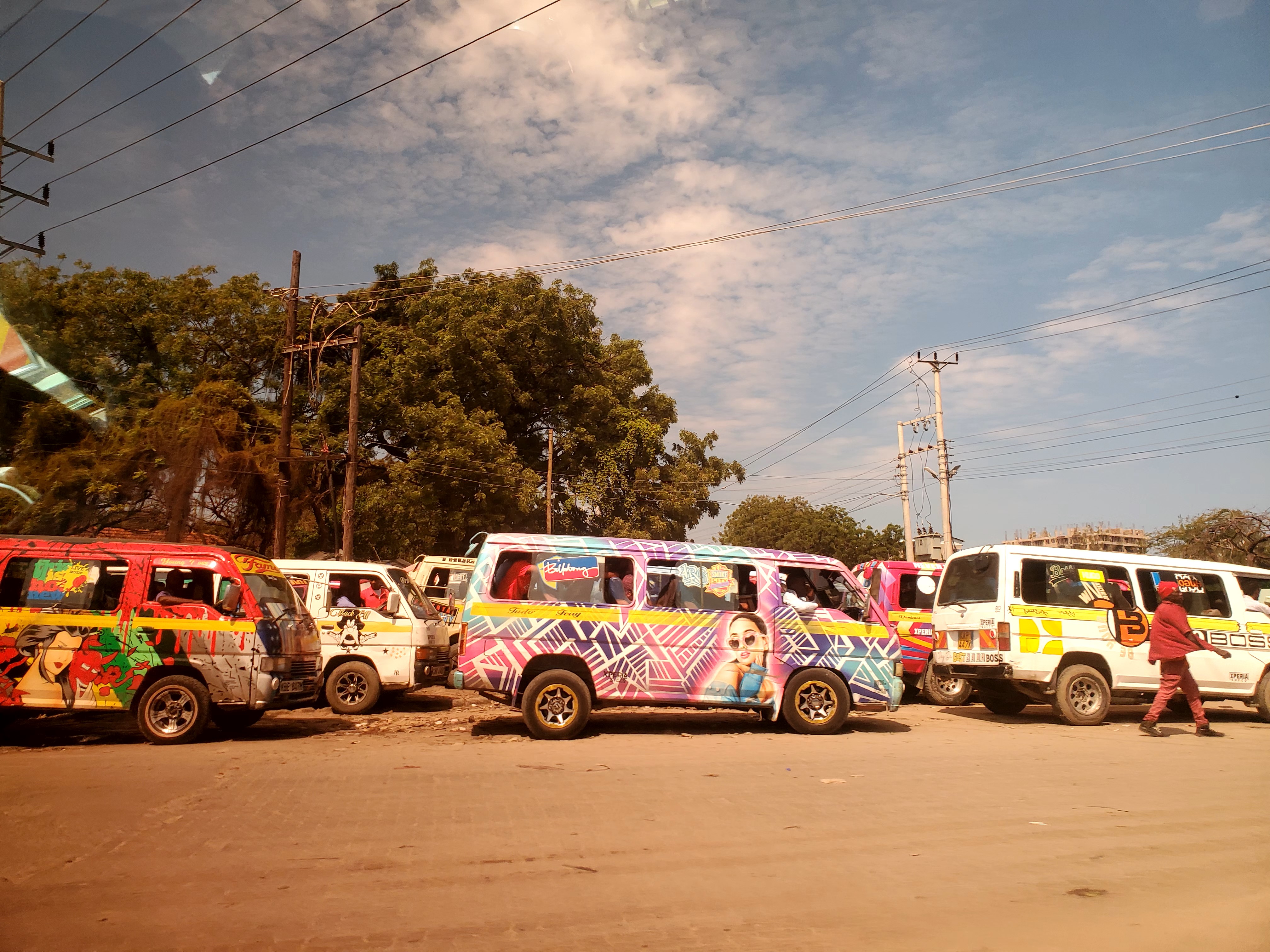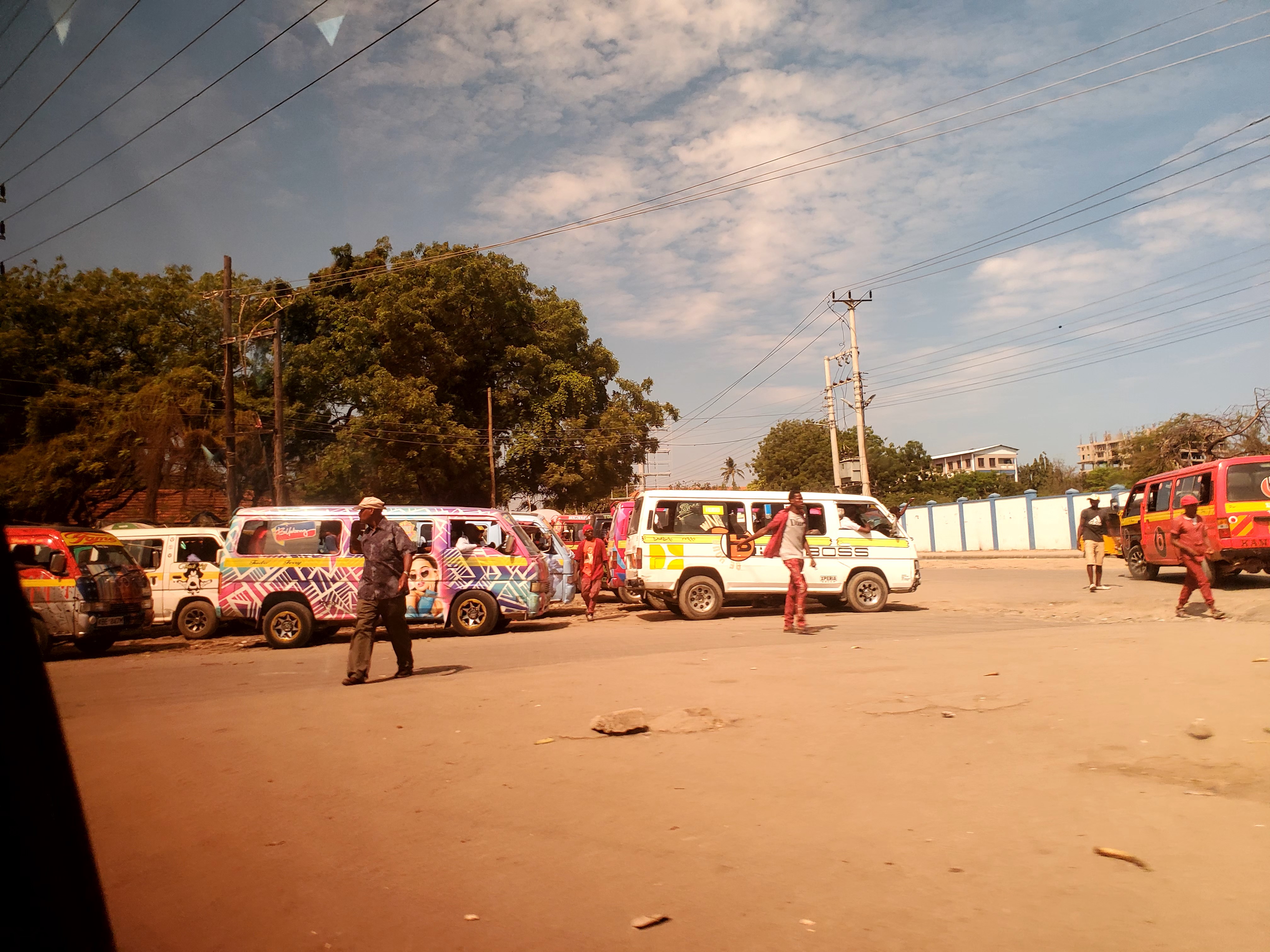

Anyone who has heard me talk about my time in Mombasa will have heard me talking repeatedly and excitedly about Matatu. In the absence of Public Transit, most people get around on boda-boda (riding pillion on a small motorcycle), Tuk Tuk (motorcycle rickshaws) and Matatu - usually a small minibus (often a converted Japanese Microvan) into which 14 or so will be squeezed for inexpensive travel.There are larger buses for longer distances, but around most towns and cities the Matatu is the most common form of transport, up to 70% of commuter journeys are taken by Matatu.

These vans are often decorated and sport impressive paint schemes, loud music pumps from massive bass-y speakers and one can usually find Matatu at various 'staging posts' around towns and cities.
I loved my experience of matatu life - the music, the hustle, the noise, the jostling. I took matatu in and out of Mombasa from our accommodation in Diani Beach a number of times over the three weeks or so we stayed in Kenya and the local hustlers at the staging post soon got to recognize me (large white man in Clergy collar is not a common local look). Obviously it's something of a risk to be riding a strange system in a strange city, but I never felt threatened or anything other than welcome, it's where I found myself called 'baba' (elder), and it was an experience of local culture that I probably wouldn't have had if I'd stayed in the bubble of a taxi or a hire car.

In those hot, sticky, loud, packed, vehicles I saw friends laughing together, women travelling to mosque or market in their hijab, men making deals on cell phones, kids getting to and from school, hustlers trying to make a few shillings, families making their way around. People were unfailingly friendly and warm towards me and even though our lives only intersected for a few minutes, a number of people made a point of connecting with me. It felt like a tiny community powering up the highway! And it felt like God could be as much present there as any other place I visited.

Proverbs 1.20-23
Wisdom cries out in the street;
in the squares she raises her voice.
At the busiest corner she cries out;
at the entrance of the city gates she speaks:
‘How long, O simple ones, will you love being simple?
How long will scoffers delight in their scoffing
and fools hate knowledge?
Give heed to my reproof;
I will pour out my thoughts to you;
I will make my words known to you.
